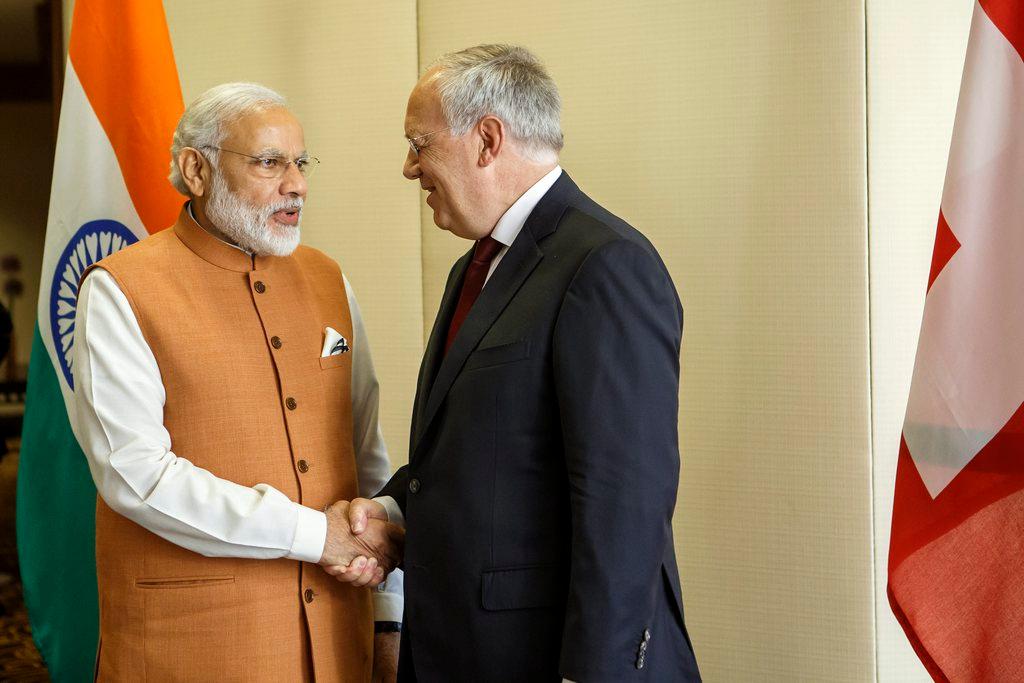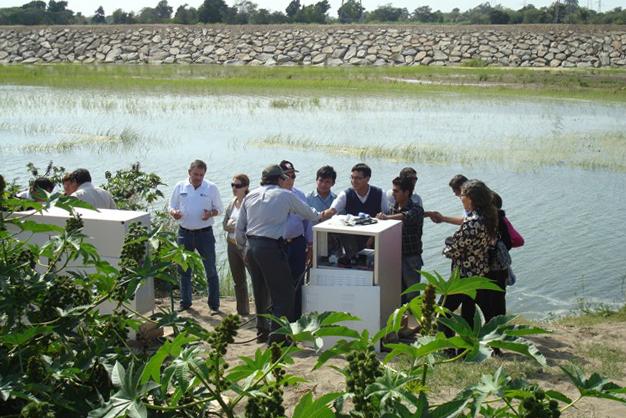India attempts to win over red-tape wary Swiss

India’s drive to attract more Swiss investment in the country could be a hard sell due to skepticism about the ease of doing business on the sub-continent.
As the 11th largest investor in India, Switzerland was wooed on Thursday at the Indo-Swiss Investment and Innovation Forum in Lausanne.
“India is a huge expanding market and Switzerland can achieve scale in India in a manner not possible in other markets that are either stagnating or under a cloud of uncertainty,” Smita Purushottam, India’s ambassador to Switzerland, told swissinfo.ch.
The Indian government has been aggressively promoting the country abroad with its “Make in India” campaign, highlighting how sectors like defence, railways, insurance and power have been opened up to foreign investment.
Swiss expertise in the areas of manufacturing, biotech and fintech were especially coveted, as they are important strategic sectors for the Indian government. High-level Indian officials in charge of technology and defence flew in for the one-day event to convince participants that India was open for business.
However, despite encouraging economic reforms some bottlenecks still need to be resolved at the ground level.
“The top level of government is up to date with what’s happening and is responsive but the same cannot be said of lower level officials. You still face the same issues if you go to the tax office or registrar of companies,” says Rakshit Mehta of Euro Alliance SA, who participated in the investment forum.
Mehta is involved in a startup called WaterQuest in India that virtually prospects for perennial sources of water. According to him, CEOs of startups can spend up to a third of their time in paperwork and bureaucracy. India came in at 130 of 190 countries in the World Bank’s ease of doing business rankingExternal link and 155 when it came to ease of starting a business.
Mehta is also frustrated that despite an official policy to promote startups, the government’s procurement policies discourage them from bidding for public contracts.
“Current policies are outdated. Startups don’t have track records or five-year financial documents required to bid on such projects,” he says.
Getting skilled employees is another problem. While India produces thousands of engineering and IT graduates every year, Swiss companies find it difficult to recruit technicians, machine operators and electricians.
“We look for very high-end engineers and India is a great place to find them thanks to prestigious engineering institutions like the Indian Institutes of Technology,” says Harmeet Singh Bawa of ABB. However, the company has to rely on its own in-house vocational training programme to hire less qualified staff. Other companies have also done the same.
“We had issues in finding qualified personnel that stayed with us long enough to apply the training we had given them,” says Oliver Hoppach of Sulzer.
His firm has to train technicians or collaborate with Industrial Training Institutes (ITIs) to ensure staffing requirements at met. Sulzer is also partnering with other companies in India like Syngenta, Burckhardt Compression and Rieter to create a Swiss-style vocational education centre near the city of Pune.
Another problem area is arbitration. While India has recently introduced specialised commercial courts to handle company disputes, arbitration cases still have to be handled by judges. This means a decision can take up to three years, according to the World Bank.
“Arbitration is another bottleneck as it is still a judicial process while in the west it is more or less a voluntary process,” says Mehta.
The Indian ambassador is aware that reforms may not have filtered through to all levels of government yet. According to her, it is only a matter of time.
“India’s rate of growth is steady and is going to reach double digits soon once policies begin to have an impact on the ground. With issues of infrastructure and ease of doing business tackled, the economy will take off,” she says.
The free-trade agreement between India and EFTA countries (Switzerland, Norway, Liechtenstein and Iceland) hasn’t materialised despite discussions since 2008. There have been recent attempts last year to revive talks. However, issues such as intellectual property concerning pharmaceutical products, as well work permits for skilled Indian workers, continue to remain road blocks.
According to India’s ambassador to Switzerland Smita Purushottam, both countries are 95% of the way in reaching a deal.

In compliance with the JTI standards
More: SWI swissinfo.ch certified by the Journalism Trust Initiative














You can find an overview of ongoing debates with our journalists here . Please join us!
If you want to start a conversation about a topic raised in this article or want to report factual errors, email us at english@swissinfo.ch.